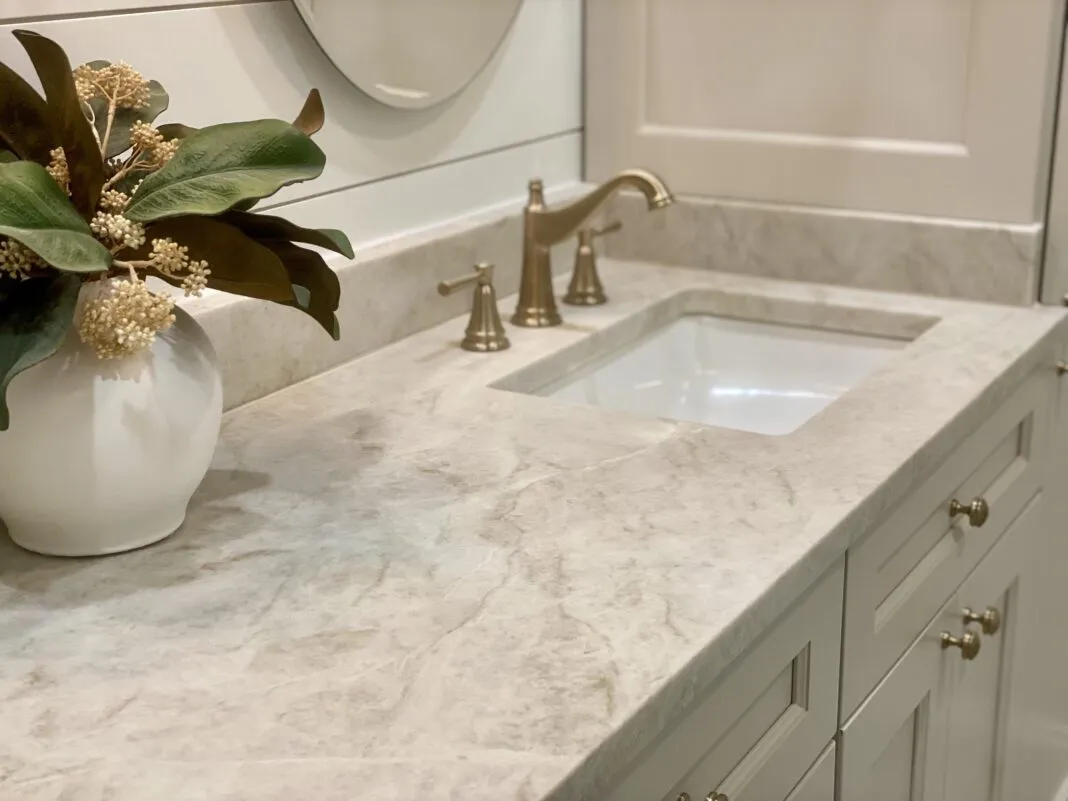How to choose the perfect countertop
Sponsored by Menzie Stone Company
Countertops are an essential element of any home. They’re the foundation for much of our daily routines — getting ready for the day, folding laundry, preparing dinner. And in commercial settings, countertops are just as crucial, providing work surfaces, display areas and more.
Because they’re used for so many things, it’s important for countertops to be strong and durable. But they can be beautiful too, offering a way to make a statement in the kitchen, bathroom, laundry room and other spaces.
Upgrading your countertops is an investment that can breathe new life into a home or business. A wide range of materials is available — and the sheer volume of choices can be overwhelming. Turn to the professionals at Menzie Stone Company. They have the expertise to guide you in selecting the best countertop for your needs, and after the install, they’ll even help you keep it looking great with resealing and repair services.
A provider, fabricator and installer of natural and manufactured stone since 1955, Menzie Stone Company can handle any project, whether it’s a large commercial job, a quick residential update or something in between.
Shop around the 5,000-square-foot indoor showroom at 16575 Commercial Ave. in Baton Rouge, where you’ll discover countertops to fit every style and budget. Be sure to browse the remnant yard, too. You might just find the perfect countertop for bargain.
Here are a few of the most popular countertop materials and some considerations to help you decide which one might be right for your project.
Soapstone
Pro: Easy daily maintenance.
Con: Susceptible to chips and dents.
Soapstone is heatproof, nonporous, naturally stain resistant and requires no sealant. It’s also naturally antimicrobial — a nice bonus in kitchens and baths. Softer than other natural stones, soapstone is more susceptible to dents, chips and scratches, but you can oil it to hide many imperfections.
Marble
Pro: Longevity.
con: Stains more easily than other natural stones.
Although beautiful and durable, marble is susceptible to staining. It requires regular sealing or a good polish to restore a well-worn surface.
Quartzite
Pro: Durability.
Con: Limited color choices.
One of the most durable materials on the market, quartzite looks similar to marble but is harder and less porous. Formed from quartz sandstone compacted by heat and pressure, quartzite is a natural stone that requires regular sealing. Its strength makes it useful in any room.
Quartz
Pro: Low maintenance,
Con: High heat sensitive.
Quartz is naturally durable, maintenance free and available in an endless array of designs and colors. Because it’s manufactured, quartz doesn’t require sealing. Finishes are similar to natural stone, and it can be polished, honed or leathered. Just be careful with extreme heat so as not to cause any burn marks.
Granite
Pro: Resists scratches.
Con: Requires regular sealant.
This natural stone is known for durability and can easily withstand the wear and tear of daily use. To keep granite stain resistant, a sealant is required. Some granite slabs have more natural pattern or “movement” than others, creating a dramatic design look.















